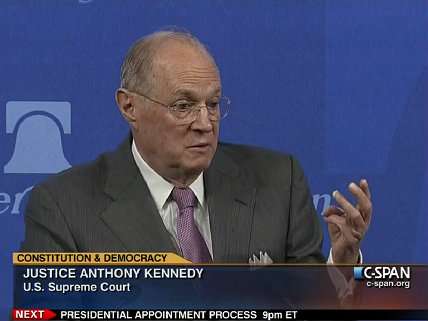Supreme Court Rules 8-0 for Landowners Fighting Clean Water Act Regulations
SCOTUS issues important property rights victory in U.S. Army Corps of Engineers v. Hawkes Co, Inc.

In an important victory for property rights nationwide, the U.S. Supreme Court ruled 8-0 on Monday that landowners have the right to seek judicial review of federal determinations which say that their properties contain "waters of the United States" subject to stringent regulations under the Clean Water Act.
The case of U.S. Army Corps of Engineers v. Hawkes Co., Inc. centered on a peat-mining business that has been prevented from using some of its property because the Army Corps of Engineers determined that the land in question contained federally protected wetlands. The Hawkes Co. disagreed with that determination and set out to challenge it in federal court. But the federal government maintained that judicial review was not an option for landowners at this stage under the Clean Water Act.
In his opinion, Chief Justice John Roberts rejected the federal government's position. "If respondents discharged fill material without a permit, in the mistaken belief that their property did not contain jurisdictional waters, they would expose themselves to civil penalties of up to $37,500 for each day they violated the [Clean Water] Act, to say nothing of potential criminal liability," Roberts observed "Respondents need not assume such risks while waiting for EPA to 'drop the hammer' in order to have their day in court."
All eight justices concurred in Roberts' judgment. However, Justice Anthony Kennedy, joined by Justices Clarence Thomas and Samuel Alito, wrote separately in order to criticize the "ominous reach" of the Clean Water Act itself. The act, Kennedy wrote, "continues to raise troubling questions regarding the Government's power to cast doubt on the full use and enjoyment of private property throughout the Nation." In effect, Kennedy, Thomas, and Alito just invited future litigants to file more property rights cases against the Clean Water Act.


Show Comments (91)